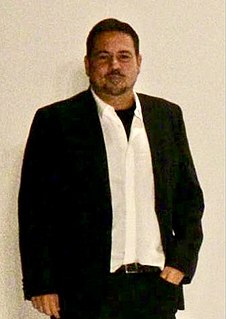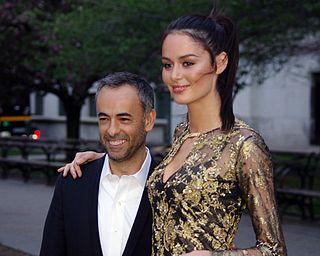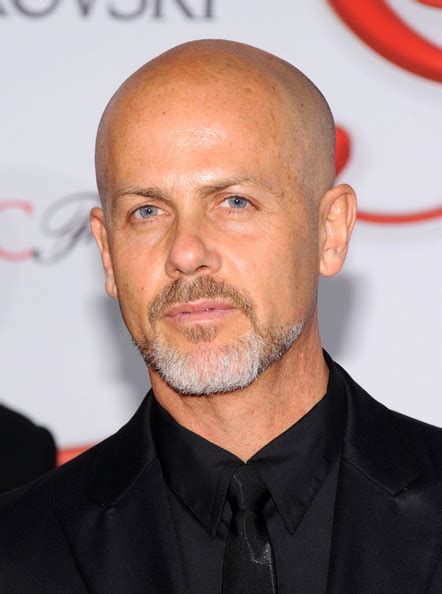A Quote by Oliver D. Crisp
[John] Calvin's Institutes is often called a summary of Christian piety. You can't say that about many modern works of theology. You can say it of Calvin.
Related Quotes
[John] Calvin is revered as a thinker of immense importance in Reformed thought, Jonathan Edwards could say in his preface to his treatise on Freedom of the Will that he had derived none of his views from the work of Calvin, though he was willing to be called a "Calvinist" for the sake of convention.
[Calvin, who has the chicken pox, calls Susie on the telephone.] Susie: Hello? Calvin: Hi, Susie! It's me, Calvin! I was wondering if you'd like to come over and play. Susie: Why, sure! Boy, I don't think you've ever invited me to... Calvin's Mom: Calvin, what are you doing? Calvin: Nothing, Mom. Go away. Calvin's Mom: You're contagious! You can't have anyone over to play! Calvin: Shhhh! Shhhh! You'll spoil the whole thing! I was going to trick Susie into catching... HEY! OW! LET GO! Susie: [Hanging up the phone] Any chance of getting transferred, Dad?
I had been reading about [John] Calvin for years and had been studying the English Renaissance for many more years, and it had never occurred to me to think of them together. I learned that Calvin was the most widely read writer in England in Shakespeare's lifetime. He was translated and published in many editions.
John Calvin's theology emphasizes the sanctity of conscience, the sanctity of companionate marriage, and the obligation of those in power to attend to the well-being of the people in general, especially the poor. Interestingly, for the interpretation of Hamlet, for example, he forbids even the thought of revenge. This is not the Calvin of myth, but when the Elizabethans read him there was no such myth, nor would there be now, if he were read.
Ms. Wormwood: Calvin, can you tell us what Lewis and Clark did? Calvin: No, but I can recite the secret superhero origin of each member of Captain Napalm's Thermonuclear League of Liberty. Ms. Wormwood: See me after class, Calvin. Calvin: [retrospectively] I'm not dumb. I just have a command of thoroughly useless information.
You can't compare us, but I do think that Calvin Klein influenced his way of working. Calvin created this whole aesthetic with imagery - the whole sex thing. I can see that Calvin influence on his work. What Calvin has created is untouchable. My legacy, whatever it is I'm doing here, is miniscule compared to what he has done. It's just like an update deal.
[Calvin and Hobbes are playing Scrabble] Calvin: Ha! I've got a great word and it's on a "Double word score" box! Hobbes: "ZQFMGB" isn't a word! It doesn't even have a vowel! Calvin: It is so a word! It's a worm found in New Guinea! Everyone knows that! Hobbes: I'm looking it up. Calvin: You do, and I'll look up that 12-letter word you played with all the Xs and Js! Hobbes: What's your score for ZQFMGB? Calvin: 957.
The classic theology of my tradition comes from the French Renaissance. [William] Shakespeare was born in 1564, the year [John] Calvin died, and that theology was very influential in England in his lifetime. I think Shakespeare was attentive to questions raised by it, about human nature, history, reality itself. I find the two literatures to be mutually illuminating.
There are many things Calvin Klein would have never done - he would have never put men in leggings in a show; he would have never done a fluorescent suit - but these are things that are right for the moment. For example, a fluorescent suit is graphic, and Calvin Klein is about being graphic. And Calvin Klein is always modern at its core, so I inject my own research and my own innovation, and I make it my own. But I never deny that core, because that would be stupid.
Calvin: Somewhere in Communist Russia, I'll bet there's a little boy who has never known anything but censorship and oppression. But maybe he's heard of America, and he dreams of living in this land of freedom and opportunity! Someday, I'd like to meet that little boy... and tell him the awful TRUTH ABOUT THIS PLACE!! Calvin's Dad: Calvin, be quiet and eat the stupid Lima beans.
























